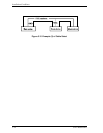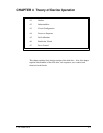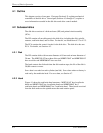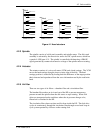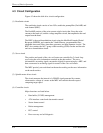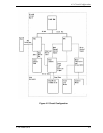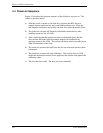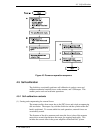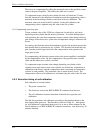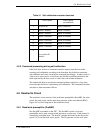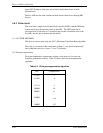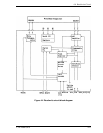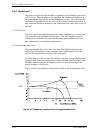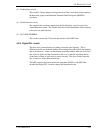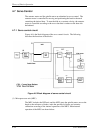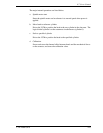
Theory of Device Operation
4-8 C141-E088-03EN
The forces are compensated by adding the measured value to the specified current
value to the power amplifier. This makes the stable servo control.
To compensate torque varing by the cylinder, the disk is divided into 23 areas
from the innermost to the outermost circumference and the compensating value is
measured at the measuring cylinder on each area at factory calibration. The
measured values are stored in the SA cylinder. In the self-calibration, the
compensating value is updated using the value in the SA cylinder.
(2) Compensating open loop gain
Torque constant value of the VCM has a dispersion for each drive, and varies
depending on the cylinder that the head is positioned. To realize the high speed
seek operation, the value that compensates torque constant value change and loop
gain change of the whole servo system due to temperature change is measured and
stored.
For sensing, the firmware mixes the disturbance signal to the position signal at the
state that the head is positioned to any cylinder. The firmware calculates the loop
gain from the position signal and stores the compensation value against to the
target gain as ratio.
For compensating, the direction current value to the power amplifier is multiplied
by the compensation value. By this compensation, loop gain becomes constant
value and the stable servo control is realized.
To compensate torque constant value change depending on cylinder, whole
cylinders from most inner to most outer cylinder are divided into 16 partitions at
calibration in the factory, and the compensation data is measured for representive
cylinder of each partition. This measured value is stored in the SA area. The
compensation value at self-calibration is calculated using the value in the SA area.
4.5.2 Execution timing of self-calibration
Self-calibration is executed when:
• The power is turned on.
• The disk drive receives the RECALIBRATE command from the host.
• The self-calibration execution timechart of the disk drive specifies self-
calibration.
The disk drive performs self-calibration according to the timechart based on the
time elapsed from power-on. The timechart is shown in Table 4.1. After power-
on, self-calibration is performed about every five or ten or fifteen minutes for the
first 60 minutes or six RECALIBRATE command executions, and about every 30
minutes after that.



